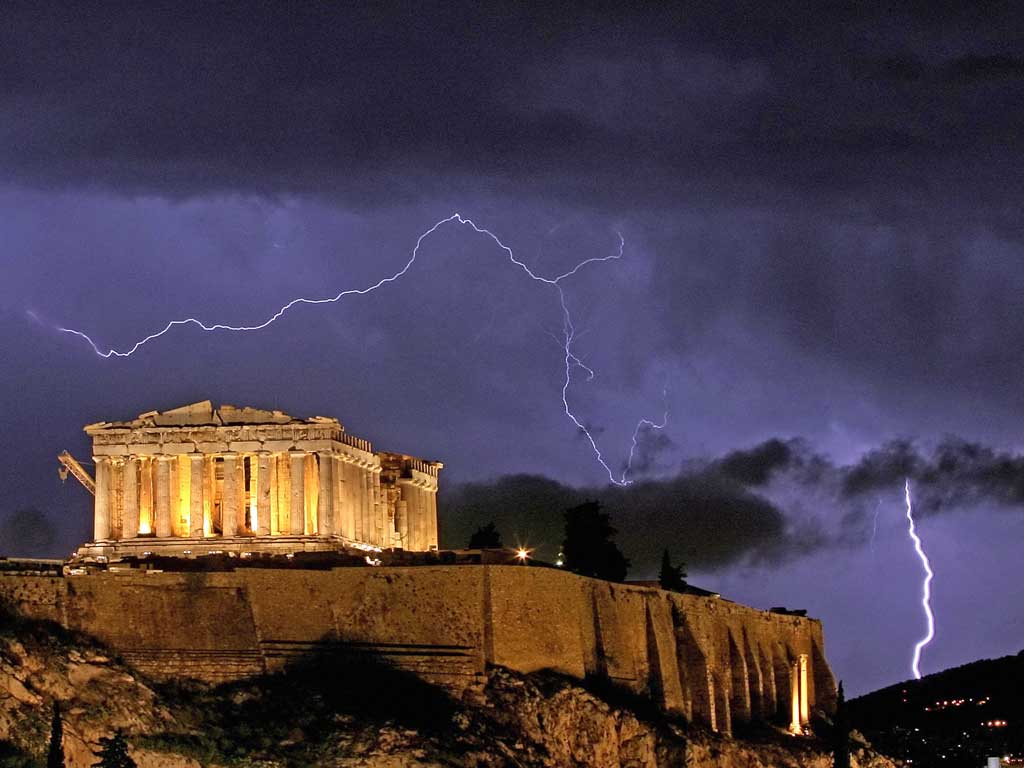Empty response to a crisis is our loss as well as theirs

Dawn over the Gulf of Corinth. The world's longest, multi-span, cable-stayed suspension bridge glowed over water which burned at the Battle of Lepanto in 1571.
This white-strung, earthquake-resistant bridge links the Peloponnese to mainland Greece. It is a masterpiece of engineering.
As Greeks reel at the thuggery of neo-Nazi party Golden Dawn, and tremble in fear of returning to the bad old days of low wages, minimal pensions and huge inflation if they leave the eurozone, I want to keep in mind the enduring, wonderful things about their country.
After the last elections in May, I was in Patras for a university conference and glad to be there. I wanted to show my support.
Greece is a large part of my life. I speak the language, I admire and love the culture and people, and they had woken up to find they had a crisis instead of a government. An untried alliance had taken a large slice of the vote; the extreme right-wing Golden Dawn had won 21 seats in Parliament.
Despite the crisis, Patras University was doing brilliantly what universities are for: teaching and research. Its conference was on "Science and the Humanities": a hot subject. Hay-on-Wye philosophy festival staged a "Science and Poetry" event this year.
Intellectual debate is a different image of Greece from riots and food queues. Physicist Dimitri Nanopoulos talked about particles; I read poems about migrating cells from my book on migration, talking in Greek but reading poems in English. This however was Greece: people turned up to translate them, beautifully.
Some of the most valuable things in Greece, including the scientific and intellectual, are under threat. Half of the country's students – Greece's future, the counter-balance to Golden Dawn – will have to leave. Without consulting universities, the Bank of Greece has invested all their deposits in Greek government bonds, which threatens all academic funding.
But Greek problems are our problems. We have our own Sinis, Procrustes and violence.
And as our education system fails less-advantaged pupils, our society has come to see Greece only as a place for cheap holidays.
This is our loss as well as theirs.
Patras Archaeological Museum is new, beautifully designed, full of enthralling art and history. But it was empty. Tourists head only for the beach.
Is that an image for the emptiness of our own response to Greece not only in its current dark hour, but to what Greece has given us?
Ruth Padel's latest book is The Mara Crossing, poems and prose on migration.
Join our commenting forum
Join thought-provoking conversations, follow other Independent readers and see their replies
Comments
Bookmark popover
Removed from bookmarks